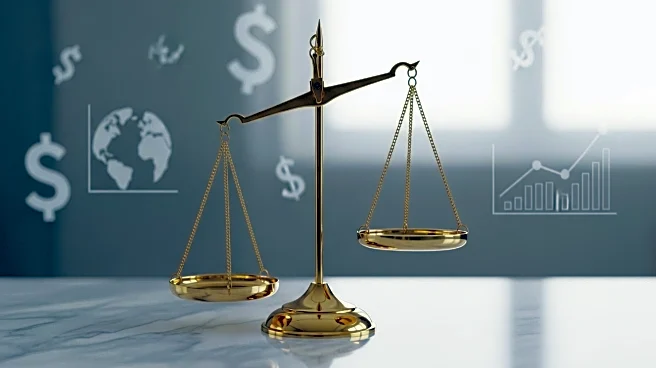What is the story about?
What's Happening?
European Central Bank policymakers are considering their December meeting as the most realistic timeframe to discuss a potential interest rate cut. This decision is influenced by the need to buffer the euro zone economy from the impact of U.S. tariffs. The ECB recently left rates unchanged and maintained a positive outlook on growth and inflation, which has dampened expectations for further cuts in borrowing costs. However, sources within the ECB's Governing Council indicate that the debate on rate cuts is ongoing, with December seen as a more likely date for discussions.
Why It's Important?
The potential rate cut in December is significant as it reflects the ECB's strategic response to external economic pressures, particularly from U.S. tariffs. This decision could have wide-ranging implications for the euro zone economy, affecting trade, investment, and consumer spending. A rate cut could provide relief to businesses facing tariff-related challenges, while also influencing the broader economic outlook. The ECB's cautious approach underscores the complexity of managing monetary policy in a globalized economy.
What's Next?
The ECB's December meeting will be crucial in determining the future direction of its monetary policy. Policymakers will assess incoming inflation and growth data, along with new economic projections, to make informed decisions. The outcome of this meeting could set the tone for the euro zone's economic strategy in the coming months, with potential ripple effects on global markets.

















